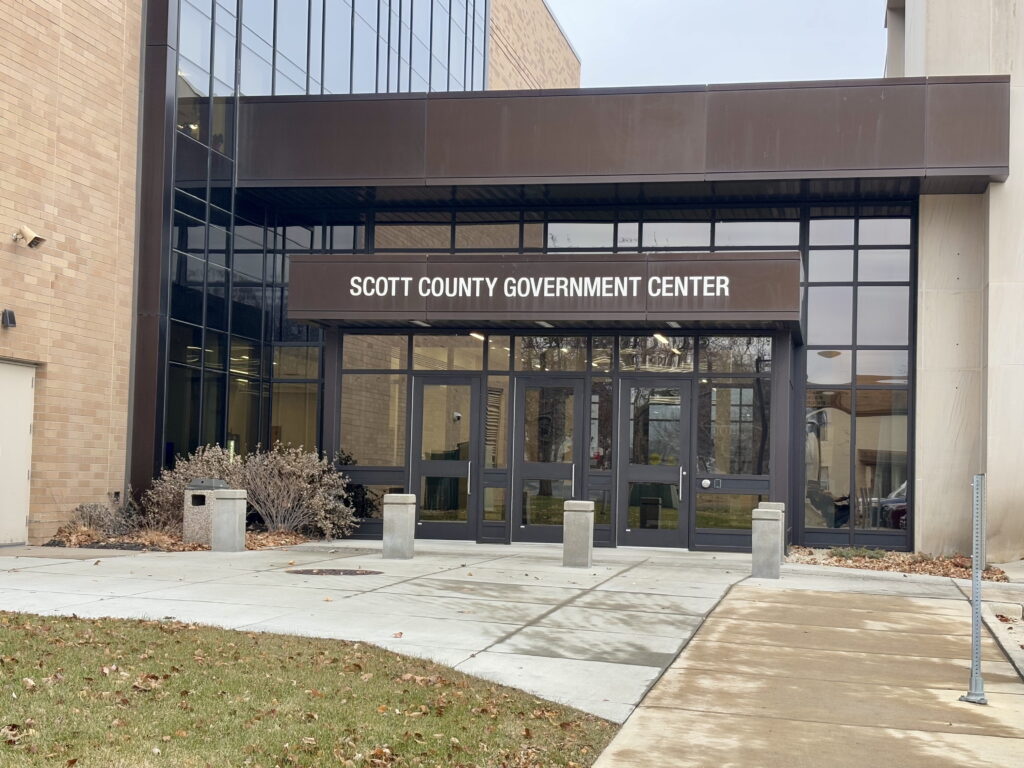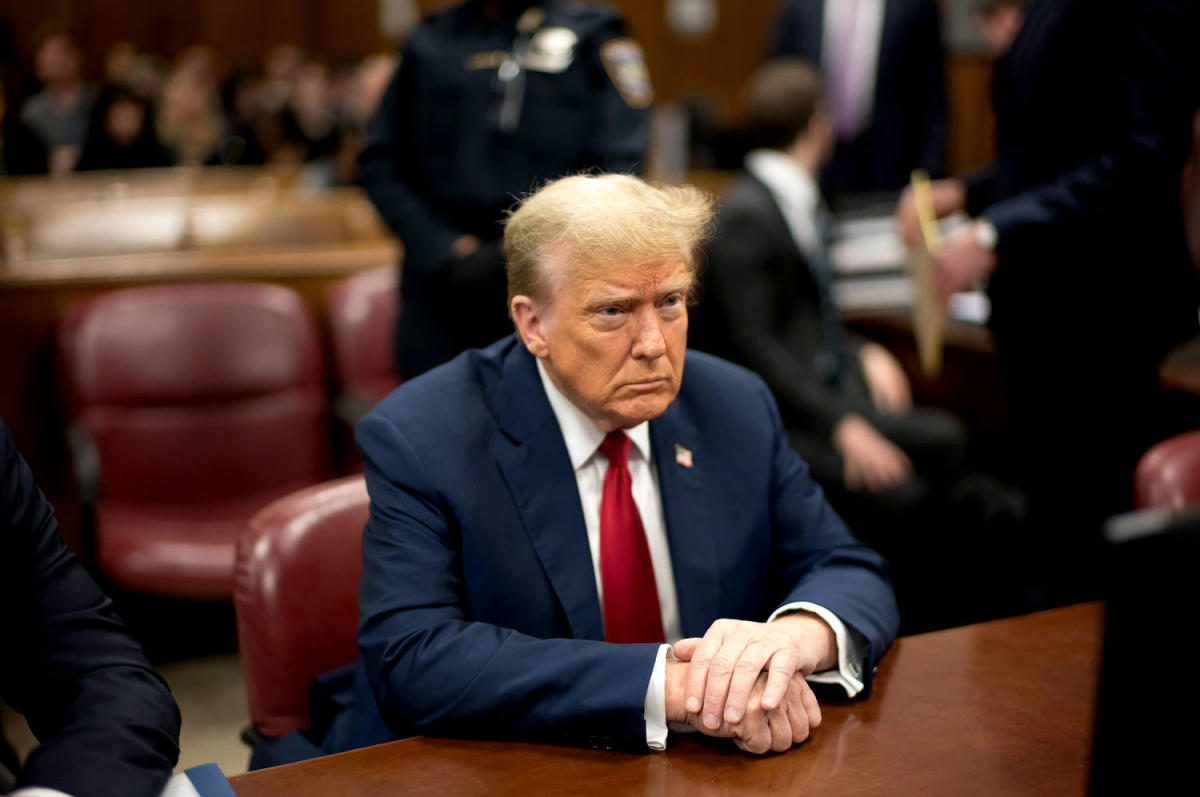
The Scott County Government Center, where the House District 54A election contest trial was held, seen on Dec. 16, 2024. Photo by Michelle Griffith/Minnesota Reformer.
During the first day of a bench trial that could determine control of the Minnesota House, a key question emerged about 20 missing ballots upon which the race and the contested result now hinge: Do we know which Shakopee residents cast those missing ballots?
In House District 54A, which includes Shakopee, Rep. Brad Tabke won the race over GOP challenger Aaron Paul by 14 votes. If Tabke prevails, the House will be deadlocked 67-67 between Republicans and Democrats; legislative leaders are currently working on a power-sharing agreement, but it appears stalled while the court case contesting the 54A race proceeds.
Advertisement
Advertisement
Paul is contesting the election results, and on the first day of what’s expected to be a two-day trial Monday, lawyers for Tabke and Paul agreed on the basic facts of the case: Twenty ballots went missing around Oct. 17, and the county has done all it can to retrieve them, without success. An official likely threw away the 20 absentee ballots, all of which were delivered in-person at Shakopee City Hall.
Attorney David Zoll, on behalf of Tabke, argued that the lawyers can determine who cast the absentee ballots that are now missing and ask them who they voted for.
Paul’s attorney Reid Lebeau, however, said it’s impossible to determine with absolute certainty who cast those ballots — therefore, a judge should order a special election.
“In the end, this court will be left with a clear choice. Either we restore certainty and confidence in our elections, in the system, or we don’t,” Lebeau said in his opening statement.
Advertisement
Advertisement
Zoll said holding a special election would disenfranchise the 20,000 residents who already cast their ballots in the House race. A special election would likely be a mid-winter, low-turnout affair.
“History shows only a fraction of the voters will cast their ballots and have their voices heard (in a special election),” Zoll said in his opening statement. “Representative Tabke, on the other hand, believes that this court and the parties should do the work to determine whether the failure to count the 20 ballots …. actually affected the outcome of the election.”
Zoll said that had the 20 ballots been counted, Tabke would still have won the race.
Prior to the trial, Judge Tracy Perzel issued a ruling that the voters’ identities would be sealed and kept secret. The voters were only identified by a number.
Advertisement
Advertisement
More in U.S.
The attorneys called witnesses that indicated both sides have identified the 20 people whose votes were lost. They’ve been able to do so because they have a good idea of the day and time of the lost ballots, allowing them to identify the voters by elimination.
LeBeau called to the stand six Shakopee voters, who said they were told by LeBeau that their votes were not counted. All six said they voted for Paul.
“I feel like I’ve been robbed,” said voter number 17, a man who appeared to be in his 60s.
On Monday, testifiers got into the nitty gritty of Scott County election procedure, detailing exactly how they believe the ballots went missing and how they attempted to retrieve them.
Advertisement
Advertisement
Scott County Elections Administrator Julie Hanson testified for about three hours about how she discovered a discrepancy in vote totals and tried to fix it. After interviewing other elections officials and consulting the state’s voter rolls, she believes that the ballots were thrown away when they were still in their “secrecy” envelopes.
An absentee ballot is in a “secrecy” envelope, which is nested inside the “signature envelope.” Election workers are tasked with approving or declining the signature envelope and, if approved, removing the secrecy envelope and setting it aside, thus preserving the voters’ secret ballot.
But in this case, rather than removing the ballots from the secrecy envelopes and running them through the machine, they mistakenly discarded the secrecy envelopes without having removed the ballots, creating a 20-ballot discrepancy between signature envelopes and ballots.
Hanson testified that election officials were supposed to keep the secrecy envelopes even after the ballots were run through the machines, but she said she was given the impression that officials had been discarding envelopes after putting ballots into the machines for some time, even before the 2024 general election.
Advertisement
Advertisement
Hanson characterized the missing ballot error as “very large” and said it was a big deal that shouldn’t have happened.
Additional witnesses are expected Tuesday. It’s unclear when Perzel will issue her ruling.
Tabke was present in court Monday, but Paul was not.
An election contest in House District 40B is also underway; the residency of winner Rep.-elect Curtis Johnson is being challenged. Though a safe DFL district, Republicans could temporarily control the House if a judge throws out Johnson’s victory and orders a special election.
EMEA Tribune is not involved in this news article, it is taken from our partners and or from the News Agencies. Copyright and Credit go to the News Agencies, email news@emeatribune.com Follow our WhatsApp verified Channel





